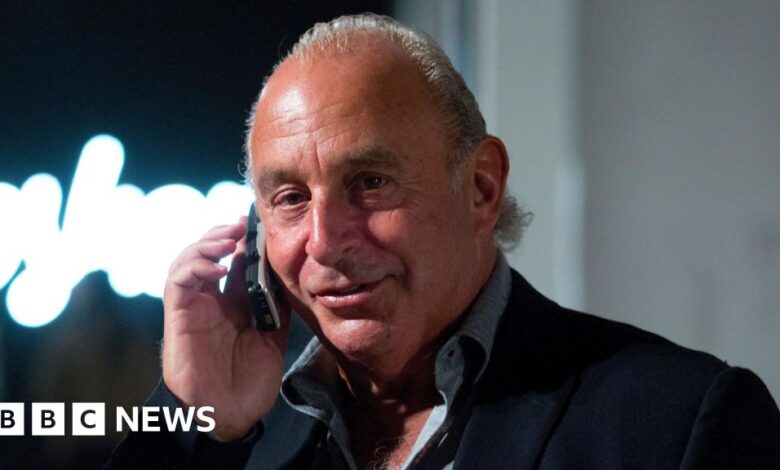Philip Green loses case over naming in Parliament

A court has rejected businessman Sir Philip Green’s complaint about being named in Parliament in relation to misconduct allegations reported by a newspaper.
The former Topshop boss launched the case after a Labour peer said in the House of Lords that the tycoon had used a court order to stop the Telegraph publishing a story about the allegations.
Parliamentary privilege gives MPs and peers absolute free speech and their comments can be reported without the threat of legal action.
On Tuesday, European Court of Human Rights ruled Sir Philip’s human rights were not breached when he was named in the House of Lords in 2018.
Sir Philip’s court injunction prevented the Telegraph from publishing misconduct allegations, including sexual and racial abuse and bullying, against five employees.
The ex-employees agreed to keep the details of their complaints confidential under non-disclosure agreements.
But the allegations were eventually reported after Labour peer Lord Hain revealed Sir Philip was behind the injunction in October 2018, using parliamentary privilege.
In a statement at the time, Sir Philip “categorically and wholly” denied being guilty of any “unlawful sexual or racist behaviour”.
Sir Philip has previously accused the Telegraph of “pursuing a vendetta” against him and his staff.
In a complaint lodged in April 2019, Sir Philip’s lawyers told justices in Strasbourg that Lord Hain’s statement made his breach of confidence claim against the Telegraph futile, violating his right to a fair trial and breaching his right to privacy.
Lawyers for the businessman challenged the absence of controls on the power of parliamentary privilege to reveal information covered by an injunction.
On Tuesday, a panel of eight judges ruled against Sir Philip, finding his right to privacy under Article 8 of the convention had not been violated.
A majority of the judges also found that his complaints brought under Article 6, the right to a fair hearing, and Article 13, the right to an effective remedy, were “inadmissible”.
The justices said national parliaments “are better placed than the international judge to assess the need to restrict conduct by a member”.
They added “the court would require strong reasons to substitute its view for that of Parliament”.
Following the ruling, Lord Hain said: “I’m really pleased that the Strasbourg Court defended parliamentary privilege and my right to have named Sir Philip.”
He also accused the businessman of “resorting to all sorts of specious legal twists” and claimed he should “start behaving respectfully”.
Downing Street defended the principle of parliamentary privilege following the court’s ruling.
The prime minister’s official spokesman said: “Parliamentary privilege is a fundamental and established principle of our constitutional arrangements and it is right that it protects the freedom of speech in Parliament, and, more generally, the right of each House to regulate its own affairs.”




